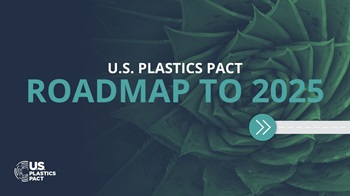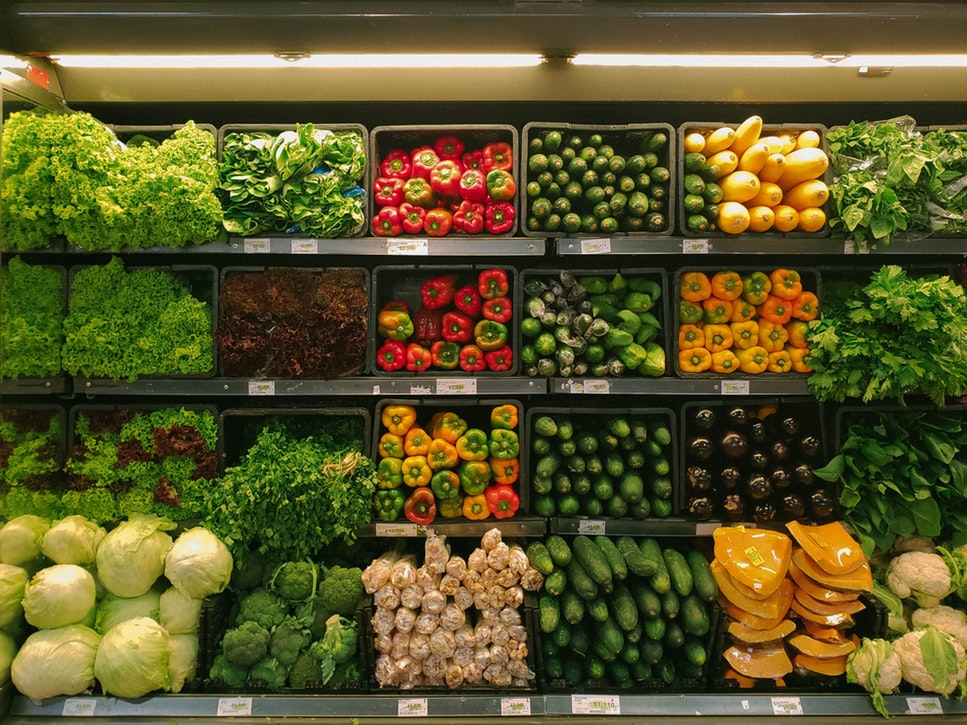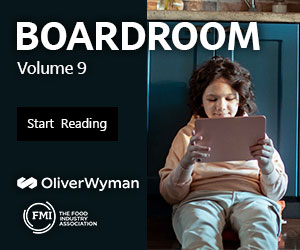By Marjorie DePuy, Senior Director, Supply Chain and Sustainability, FMI

About nine months ago, FMI joined the U.S. Plastics Pact—a collaboration among the Ellen MacArthur Foundation, World Wildlife Fund (WWF), and The Recycling Partnership—as an Activator, to collectively support a circular vision for plastics. Since then, it’s been a beehive of activity, as a group of over 95 organizations met in forums to map out a pathway toward a more sustainable approach to plastics packaging. The U.S. Plastics Pact Roadmap, released today, was created by this collaborative, solutions-driven consortium to enable participants to collectively reach ambitious goals by 2025 that couldn’t otherwise be met on their own.
The targets are ambitious, with a short timeframe and immense workload. If we choose to do nothing, the vision of a circular economy across the U.S. will give way to the status quo. The Roadmap includes clear, concrete definitions and an understanding of what the real, achievable steps are along the way to 2025.
Where possible, it is desirable that individual organizational targets are aligned, but not all targets are intended to be achieved individually. Therefore, in practice this means:
- Incorporating targets into organizational goals where possible.
- Actively collaborating with other stakeholders from across the value chain in relevant U.S. workstreams and activities.
- Actively reviewing internal packaging and product portfolios to identify opportunities to improve recyclability and consumer messaging in accordance with U.S. Pact targets.
- Contributing knowledge and insights to cross-value chain research and analysis.
- Working with suppliers to obtain accurate data for tracking and reporting progress.
- Providing objectives and training to internal teams to help meet U.S. Plastics Pact targets, developing internal accountability.
- Engaging with citizens through education campaigns, as applicable to organizational reach.
- Investing in changes and technologies to support the achievement of U.S. Pact targets.
- Reporting annually in alignment with global reporting through WWF’s ReSource: Plastic Footprint Tracker.
In addition to the ReSource Plastic reporting tool, there is a new tool available to any company to support internal efforts to evaluate their packaging footprints. Called Plastic IQ, it offers practical assessments of a packaging portfolio with suggestions and resources for less packaging, better packaging or better systems.
Recently, FMI formed a Packaging Sustainability Subcommittee of retail, wholesale and product supplier members to develop resources that support our industry alongside the U.S. Plastics Pact. The subcommittee has prioritized the development of two sustainable packaging resources that will support more streamlined data collection between trading partners about product packaging, giving guidance with a Sustainable Packaging Playbook. Members interested in learning more can connect with me.


 Industry Topics address your specific area of expertise with resources, reports, events and more.
Industry Topics address your specific area of expertise with resources, reports, events and more.
 Our Research covers consumer behavior and retail operation benchmarks so you can make informed business decisions.
Our Research covers consumer behavior and retail operation benchmarks so you can make informed business decisions.
 Events and Education including online and in-person help you advance your food retail career.
Events and Education including online and in-person help you advance your food retail career.
 Food Safety training, resources and guidance that help you create a company food safety culture.
Food Safety training, resources and guidance that help you create a company food safety culture.
 Government Affairs work — federal and state — on the latest food industry policy, regulatory and legislative issues.
Government Affairs work — federal and state — on the latest food industry policy, regulatory and legislative issues.
 Get Involved. From industry awards to newsletters and committees, these resources help you take advantage of your membership.
Get Involved. From industry awards to newsletters and committees, these resources help you take advantage of your membership.
 Best practices, guidance documents, infographics, signage and more for the food industry on the COVID-19 pandemic.
Best practices, guidance documents, infographics, signage and more for the food industry on the COVID-19 pandemic.
